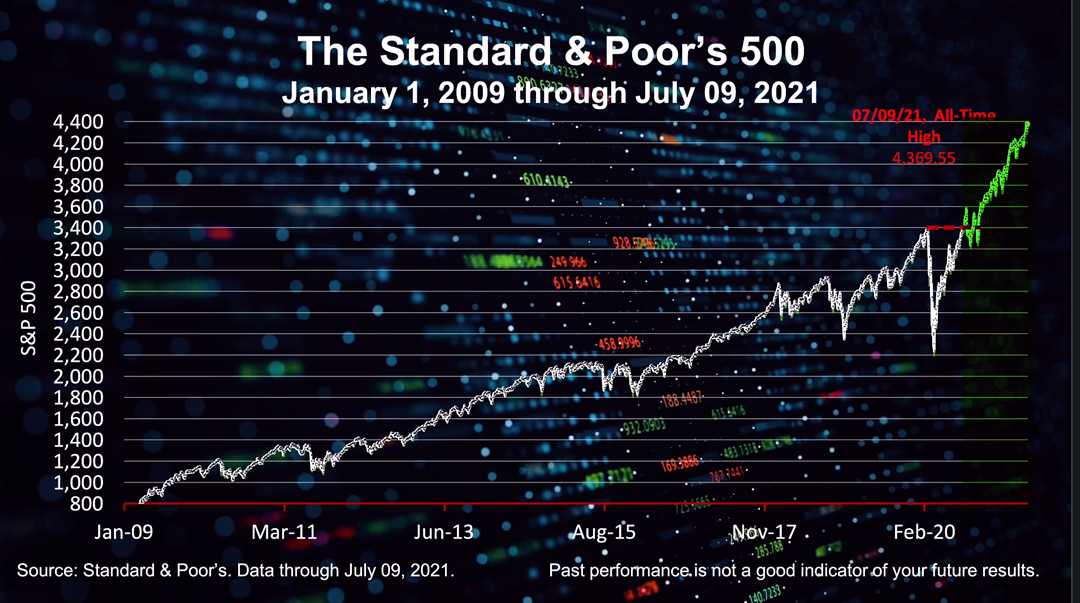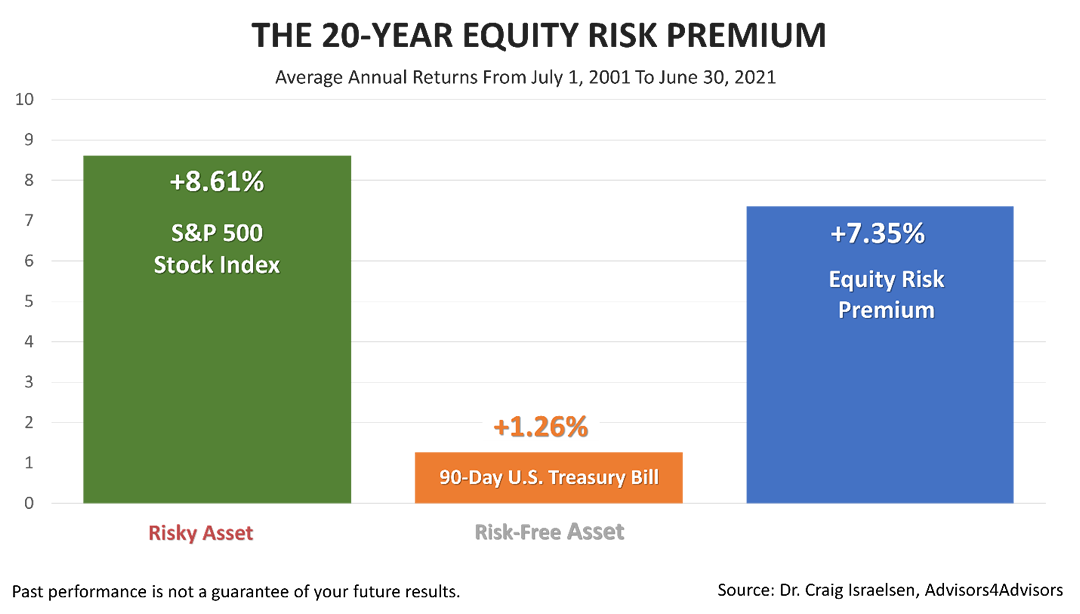Planning Briefs
Stocks Averaged A 7.35% Premium Annually Over T-Bills For Past Two Decades
The stock market has been new breaking record highs for nearly a year now, and stocks are high-priced by some traditional historical measures, such as trailing 12-month earnings. With some pundits saying stock market risk is high, this is a good time to note how investors have been compensated for taking the extra risk of investing in stocks instead of parking cash in a so-called riskless asset like 90-day Treasury bills.
Stocks, as measured by the Standard & Poor’s 500, in the 20 years ended June 30th, 2021, averaged an 8.61% annual return, compared to the meager 1.26% annual return on a the risk-free 90-day U.S Treasury Bill.
Since the T- Bill is backed by the full faith and credit of the U.S. Government, it is considered a riskless investment -- while the value of stocks is subject to ups and downs and, in theory, your entire investment could be lost in stocks. Subtracting the return on T- Bills from the return on stocks, the resulting 7.35% is the premium paid for taking the risk of owning U.S. stocks over the 20-year period. To be clear, investing in America’s 500 largest publicly-held companies earned investors an average of 7.35% more annually than a risk-free investment.
This 20-year period encompassed three frightening bear markets -- the tech stock crash of 2002, the financial crisis of 2008, and the Covid downturn of early 2020. Past performance is no guarantee of your future results and that, paradoxically, is precisely why investors are paid a premium for owning stocks. Yes, stocks are risky and that’s why they have had a higher return than guaranteed investments throughout history.
Nothing contained herein is to be considered a solicitation, research material, an investment recommendation, or advice of any kind, and it is subject to change without notice. Any investments or strategies referenced herein do not take into account the investment objectives, financial situation or particular needs of any specific person. Product suitability must be independently determined for each individual investor. Tax advice always depends on your particular personal situation and preferences. You should consult the appropriate financial professional regarding your specific circumstances. The material represents an assessment of financial, economic and tax law at a specific point in time and is not intended to be a forecast of future events or a guarantee of future results. Forward-looking statements are subject to certain risks and uncertainties. Actual results, performance, or achievements may differ materially from those expressed or implied. Information is based on data gathered from what we believe are reliable sources. It is not guaranteed as to accuracy, does not purport to be complete, and is not intended to be used as a primary basis for investment decisions. This article was written by a professional financial journalist for Advisor Products and is not intended as legal or investment advice.
This article was written by a professional financial journalist for Myles wealth management and is not intended as legal or investment advice.
©2021 Advisor Products Inc. All Rights Reserved.
More articles
- The Persistent Leadership Of U.S. Stocks
- A Tax And Financial Planning Opportunity Is Closing
- A Financial Planning Accident Waiting To Happen
- Tax Alert For High-Income And High Net Worth Individuals
- Five Years Ago In Financial Economic History
- Here's What's Happening Now In Wealth Management
- Making A Financial Transition? Answer These Five Questions
- Going Out On Your Own Terms: Six Key Documents In An Estate Plan
- Your Financial Psychology Under Current Conditions
- Do The Top 1% In Income Pay Enough Income Tax?
- What’s The Risk Of A Market Melt-Up?
- U.S. Stocks Returned 10 Times More Than Bonds In Past Five Years
- Stock Market Trend Report
- Two Observations That May Make Higher Taxes Easier To Bear
- John Oliver's Economic Analysis Is No Joke








